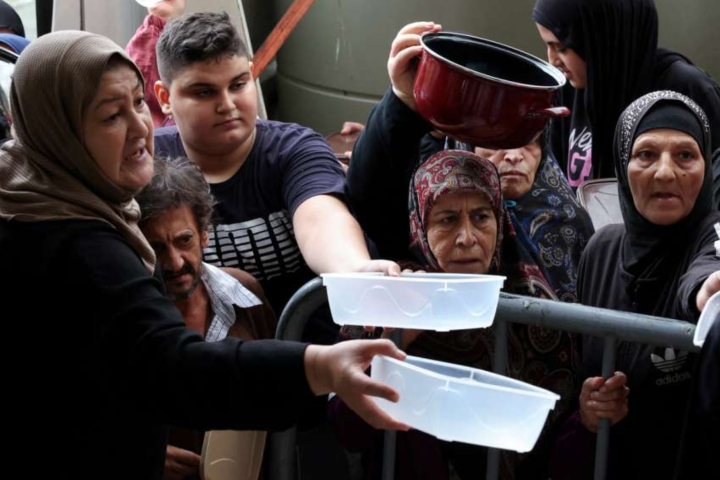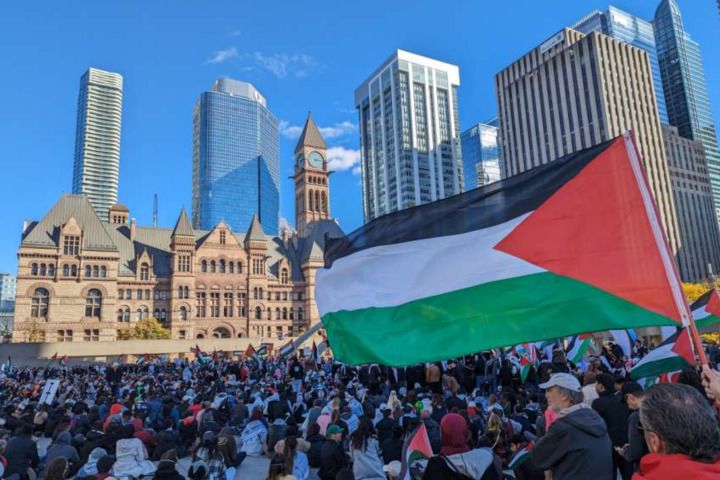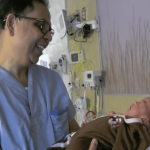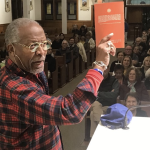By James Risdon
Amal Khames illustrates the complex religious and cultural reality of the war-torn Holy Land. A Muslim woman, she worked with Mother Teresa’s Missionaries of Charity in the Gaza Strip. Now, she is trying to rebuild her life in Port Coquitlam while helping her sisters, who remain stranded in Egypt after fleeing the Israeli-Palestinian war with five children.
“My father is still there (in the southern Gaza Strip),” said Khames. “He is still in Rafah because they closed the borders.”
The 28-year-old left Gaza two years ago with her husband, 30-year-old Isshaq Abu El-Kheer, and their young daughter when she became ill.

“My daughter is very sick and I took a vacation to take care of her,” said Khames.
In Palestine, her husband had also worked with the Missionaries of Charity, tending to the needs of men in the sisters’ care. Since coming to Canada, he has studied English and signed up to become an Uber driver, but he still needs to get a car so he can start working.
Sister Marisa Minj, superior of the Vancouver Missionaries of Charity, told The B.C. Catholic that because Amal had been a faithful worker with the Missionaries of Charity in Gaza, she connected with the sisters in Vancouver. They have been reaching out to try to help her make connections with people and groups that might be able to help her.

Even as the couple attempt to settle into Canada, they face the added burden of trying to help their loved ones who lost their homes and evacuated with almost nothing after the fighting began.
Khames’ older sister, Ranan, is now in Cairo with her five children, all of them under 11 years of age, including a three-month-old baby.
Also a former worker with the Missionaries of Charity, she is now a widow, her 33-year-old husband Mohamed Tahal being one of the estimated 34,262 Palestinians who have lost their lives during the war.
“He passed away six months ago when the war started,” said Amal. “He went to buy bread and they bombed the bakery.”
The war started last Oct. 7 when Hamas launched a surprise attack on Israel, often described as the deadliest attack on the country in decades. In that attack, Hamas operatives killed an estimated 1,200 Israelis and took 250 people as hostages.
In a recent interview, Pope Francis called for a negotiated peace.
“All ideology is bad. And antisemitism is an ideology, and it is bad. Any ‘anti’ is always bad. You can criticize one government or the other, the government of Israel, the Palestinian government. You can criticize all you want, but not ‘anti’ a people. Neither anti-Palestinian nor antisemitic. No. … I pray a lot for peace. And also suggest, ‘Please, stop. Negotiate.’”
The United Nations Relief and Works Agency (UNRWA) for Palestinian Refugees in the Near East estimates up to 1.7 million people, more than 75 per cent of the Palestinian population, have been displaced in the Gaza Strip, most of them multiple times.
The organization has repeatedly called for a ceasefire – so far to no avail.
“The international community has a shared responsibility to promote a humanitarian ceasefire, the unconditional release of all hostages, and a massive surge in life-saving aid,” said United Nations Secretary-General António Guterres on May 7.
“It is time for the parties to seize the opportunity and secure a deal for the sake of their own people.”
In the wake of that call for a ceasefire, Israeli military forces seized control of the Palestinian side of Egypt’s border with Gaza, indicating there would be no permanent ceasefire for at least the foreseeable future.

Amal Khames is saddened by all the death and misery the war has created. Her younger sister, who also worked with the Missionaries of Charity, is now also in Cairo.
Despite media requests for comment, the Missionaries of Charity did not respond by press deadline.
Amal now has seven relatives stuck in Egypt. She sends them whatever money she can, roughly U.S. $350 every month for rent as they wait to get passports and, hopefully, eventually be reunited. Her hope is that her sisters and the children will be able to join her in Canada.
“Give the families, like mine, a place to come for safety,” she pleads.





